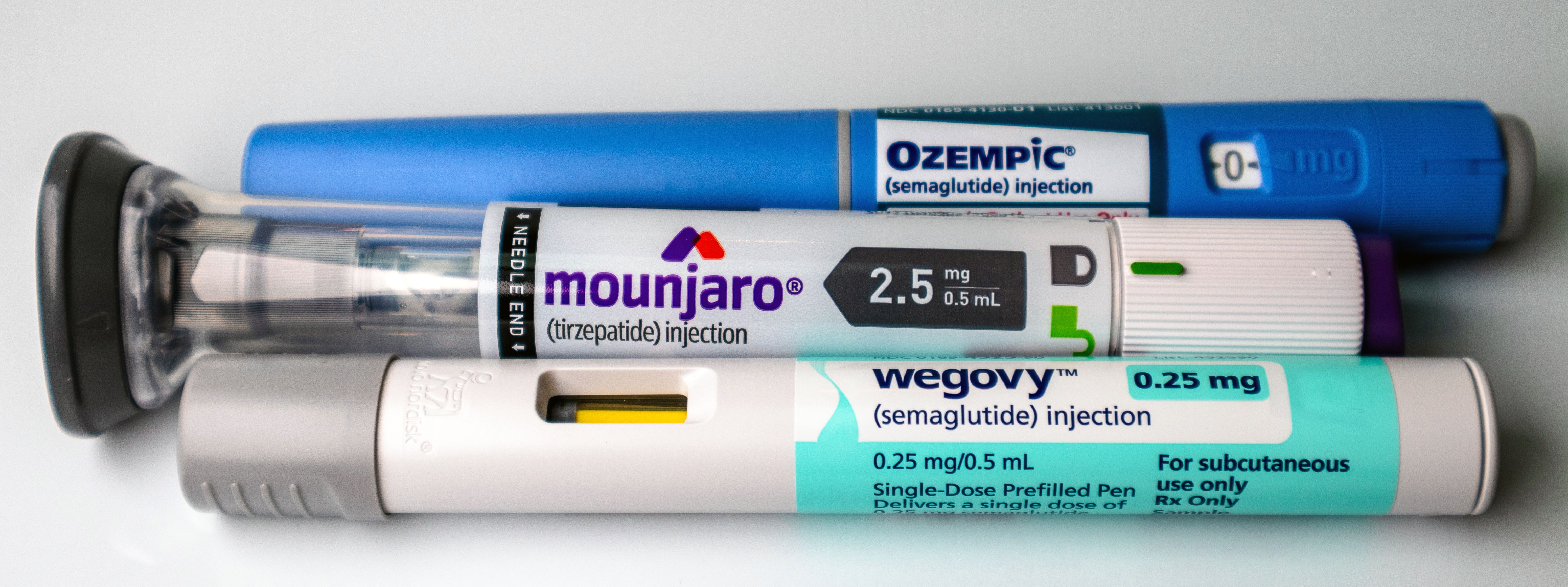- Center on Health Equity & Access
- Clinical
- Health Care Cost
- Health Care Delivery
- Insurance
- Policy
- Technology
- Value-Based Care
GLP-1 Receptor Agonists Show Promise as Adjunctive Treatment for Ovarian Cancer
Glucagon-like peptide-1 (GLP-1) receptor agonists significantly enhance overall survival in patients with ovarian cancer, offering a promising adjunct to traditional treatments.
The use of glucagon-like peptide-1 (GLP-1) receptor agonists is associated with significantly improved survival in women with ovarian cancer, according to a study published in Gynecologic Oncology.1
For the past 3 decades, the standard first-line treatment for ovarian cancer has remained largely unchanged, typically involving platinum-based chemotherapy combined with paclitaxel. Although newer therapies, such as poly ADP-ribose polymerase (PARP) inhibitors, have improved progression-free survival, overall survival advancements have been modest. Most patients relapse after initial treatment, resulting in a 5-year relative survival rate of 51%. As a result, the researchers highlighted the urgent need for novel treatment strategies.
GLP-1 receptor agonists have become a staple in the treatment of type 2 diabetes and obesity, with the latter being a major risk factor for ovarian cancer, as it promotes tumor metastasis and reduces survival. A previous retrospective study found that GLP-1 receptor agonist therapy was associated with a reduced incidence of 10 out of 13 obesity-related cancers, including a 48% reduction in ovarian cancer risk.2
However, whether GLP-1 receptor agonist use after an ovarian cancer diagnosis can improve survival remains unclear.1 To address this gap, the researchers conducted a retrospective cohort study to evaluate the association between GLP-1 receptor agonist use and 5-year all-cause mortality in women with ovarian cancer. Patients were followed from diagnosis until death or last available follow-up, with surviving patients censored at last contact.
Glucagon-like peptide-1 (GLP-1) receptor agonists significantly enhance overall survival in patients with ovarian cancer, offering a promising adjunct to traditional treatments. | Image Credit: K KStock - stock.adobe.com

The study utilized data from the TriNetX Research Network, a global federated database containing de-identified electronic health records from over 100 million patients, primarily in North America. Eligible patients were aged 18 to 75 and diagnosed with ovarian, fallopian tube, or primary peritoneal carcinoma between 2014 and 2023, with no history of other malignancies.
Patients were divided into 2 cohorts based on exposure to GLP-1 receptor agonists. A 1:1 propensity score matching was performed to balance baseline characteristics, including demographics, medications, comorbidities, and cancer stage.
Of the 70,083 women with ovarian cancer in the database, 1032 had received GLP-1 receptor agonists around the time of diagnosis. After matching, each cohort included 1023 patients. The 2 cohorts showed similarities in most variables (standard mean difference < .1). For example, the mean (SD) age was 55.19 (10.65) years among GLP-1 receptor agonist users and 55.36 (10.98) among non-users.
After excluding patients who died within 3 months of diagnosis, the final analysis included 1007 patients in the GLP-1 receptor agonist cohort and 959 in the non-user cohort. The median follow-up was 703 days for the GLP-1 receptor agonist cohort and 879 days for the non-user cohort, reflecting the more recent uptake of GLP-1 receptor agonists in clinical practice.
Patients using GLP-1 receptor agonists had significantly improved overall survival during follow-up compared with non-users, with all-cause mortality rates of 7.94% and 19.71%, respectively; survival probabilities at the end of follow-up were 83.98% and 70.60%, respectively. Based on the Cox proportional hazards model, GLP-1 receptor agonist use was associated with a 55% reduction in mortality risk (HR, 0.45; 95% CI, 0.35-0.59).
This survival benefit was consistent across most subgroups, particularly among patients who received chemotherapy or PARP inhibitors, suggesting that GLP-1 receptor agonists could be added to standard ovarian cancer treatments. Benefits were also observed regardless of age, obesity status, or type 2 diabetes diagnosis.
However, no significant benefit was found in patients with metastatic disease at diagnosis, those with comorbid heart failure or chronic kidney disease, or those treated with bevacizumab. Although HRs still favored GLP-1 receptor agonist use in these groups, they did not reach statistical significance, potentially due to small sample sizes or higher patient frailty.
The researchers acknowledged their study’s limitations, including that its retrospective design cannot establish causality. They noted that prospective trials are needed to confirm whether GLP-1 receptor agonists directly improve survival in ovarian cancer.
“Given their widespread clinical use and favorable safety profile, GLP-1 RAs may represent a promising adjunctive strategy for improving outcomes in women with ovarian cancer, particularly those with coexisting metabolic disorders.”
References
- Wang M, Dong T, Lucero M, et al. Association between glucagon-like peptide-1 receptor agonists and ovarian cancer survival: a population-based cohort study. Gynecol Oncol. Published online June 18, 2025. doi:10.1016/j.ygyno.2025.06.012
- Wang L, Xu R, Kaelber DC, Berger NA. Glucagon-like peptide 1 receptor agonists and 13 obesity-associated cancers in patients with type 2 diabetes. JAMA Netw Open. 2024;7(7):e2421305. doi:10.1001/jamanetworkopen.2024.21305
